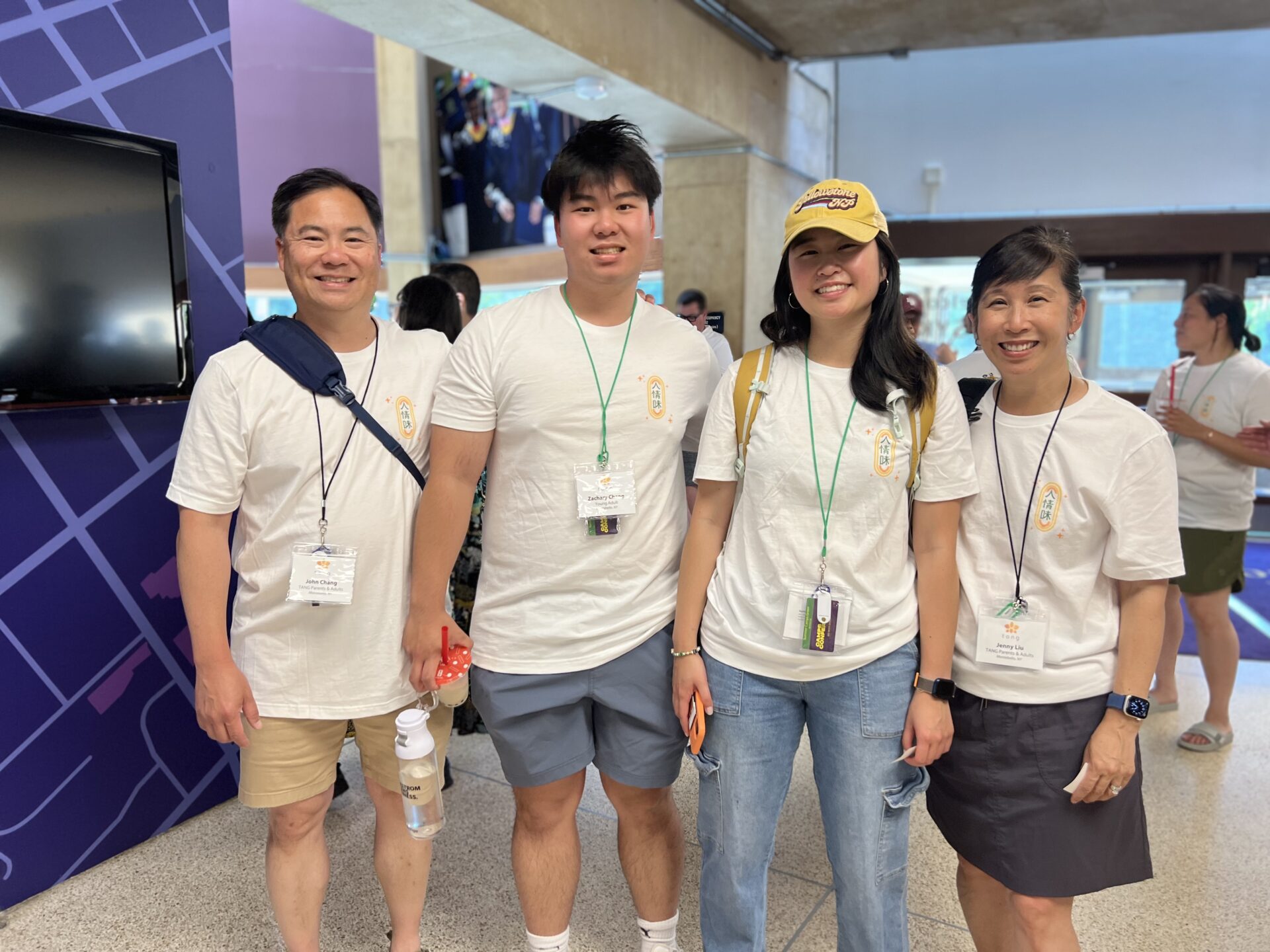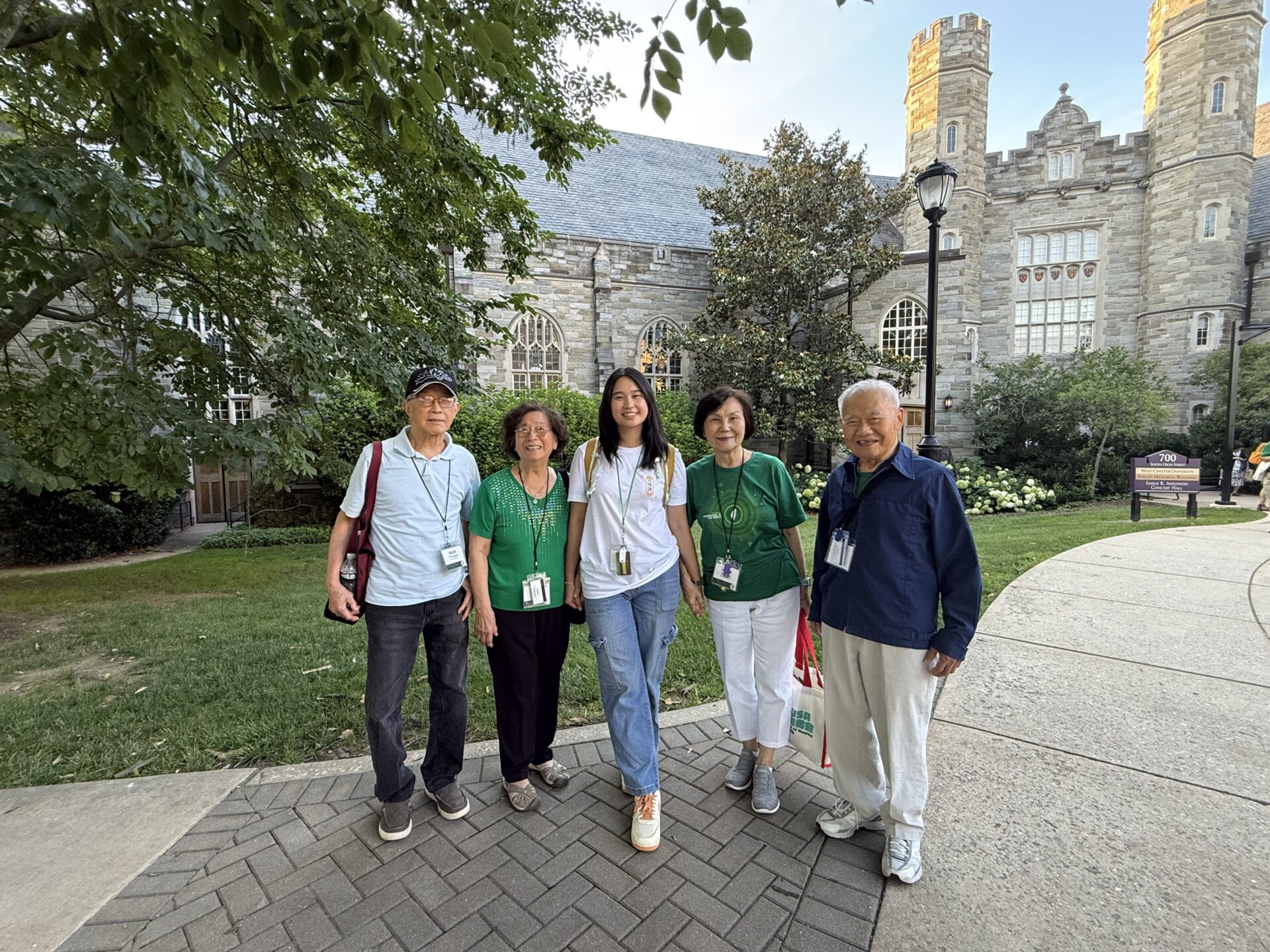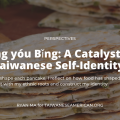Being a fresh-out-of-undergraduate 22-year old is not fun in the current U.S. job market. Luckily, I’ve decided to leave the country for a year, delaying the mundane process of the job search—or as I like to call it, “delaying adulthood”—to spend a year in Taiwan as a Fulbright English Teaching Assistant. It sounds like a laissez-faire dream, but I didn’t stumble upon this opportunity by happenstance.
Bicultural Upbringing
I come from a family that takes immense pride in their Taiwanese heritage. All four of my grandparents immigrated from Taiwan to the U.S. in the mid-1960s and remained staunch advocates of Taiwanese independence and, later on, democratization. My mom and dad regularly attended Taiwanese youth programs based in the Northeast growing up, where they forged lifelong friendships with other Taiwanese Americans of similar backgrounds and, eventually, met one another. Now, there’s my brother and me: the third-generation.
While I had always been instilled with a strong sense of Taiwanese identity, I also had a typical “suburban American” upbringing: attending public high school where our biggest problems were making sure another girl wasn’t wearing the same prom dress as you, parents sacrificing hours to drive you to sports tournaments and practices hours away from home, and so on. However, I found avenues for connection with other Taiwanese Americans through youth programs like Taiwanese American Next Generation (TANG), my university’s Taiwanese American Students Association (TASA), and an internship with the Formosan Association for Public Affairs (FAPA), a grassroots organization that actively lobbies for Taiwan on the Hill.
These connections have quelled one of my largest insecurities: how can I justify my strong sense of Taiwanese identity despite, at least at the beginning of college, never having been to Taiwan and not speaking any of its languages?
My appetite for claiming my Taiwanese American identity was still not justifiably satiated despite being part of these groups. In order to fully and earnestly claim this identity, I needed to not only connect with the Taiwanese American community, but also give back to them in some way, shape, or form. After all, due to our shared ancestral lineage, I have been able to form lifelong friendships with some of the most genuine, kind, and inspiring people I have ever met. What more can one ask for in life, right?

Giving Back to the Taiwanese American Community
In order to give back, I assumed leadership positions within my Taiwanese American communities. As a leader of a cultural-based community, you are taking up the responsibility of shaping your members’ sense of their own cultural identities and of educating others about your identity. As Co-President and later Education Chair of my university’s TASA, I sought to do just that. I launched a bi-weekly Taiwanese Language Table, where students would learn Taiwanese (otherwise known as Táigi or Hokkien) over Wawa coffee and pastries with local first-generation Taiwanese Americans. This is a language spoken by the Taiwanese who immigrated to the island before the 1940s, but the language became endangered after Kuomintang (Chinese Nationalist) rule mandated Mandarin to be the sole language of instruction in schools during the Reign of White Terror. (However, recent government efforts in Taiwan have sought to revive and preserve the language, such as the Development of National Languages Act (2019).)
Additionally, I organized a screening of Vanessa Hope’s Invisible Nation at my university for an audience of roughly 100 people. Students, faculty, and community members came together to watch how President Tsai Ing-wen governed her administration amidst rising tensions between the U.S. and China. Luckily for me, it had been relatively easy to draw in such a mass crowd for the documentary screening. “Taiwan” has become quite a buzzword for foreign policy enthusiasts, Silicon Valley techies, and anyone remotely aware of the ongoing tensions between the U.S. and China.
However, in spite of the role that the world has seemingly imposed onto Taiwan—a geopolitical pawn—I have had this urge to defend that there is more to Taiwan than a piece sacrificed without second thought. There are currently 23.3 million people living on the island and even more people part of the Taiwanese diaspora across the globe that have valuable stories and lived experiences to share about their upbringings or ancestral lineages.
Senior Thesis Research: Taiwanese Americans and the 2024 U.S. Election
This narrative is exactly what I attempted to put forth in my undergraduate senior thesis titled Will the Taiwanese American Vote Matter? Taiwanese American Political Attitudes and Identity in the 2024 U.S. Election. The research is further framed within the context of foreign policy during the election, which proved to be a divisive and potentially decisive policy dimension for other ethnic groups, as evidenced by the case of Dearborn, Michigan, an Arab American-majority city. While historically a blue city, Kamala Harris inadequately addressed concerns surrounding the Israel-Palestine conflict, causing her to lose the vote of a significant number of Arab Americans. Ultimately, Harris lost the critical city—and overall swing state—by a slim margin of 6.5%. This case demonstrated the power that small ethnic communities may possess in influencing election outcomes and warrants the importance of researching minority groups that could have similarly outsized effects on future elections.
One such group is Taiwanese Americans, given the relevance and salience of U.S.-China-Taiwan relations, which could lead to a broader global conflict down the line. I leveraged my connections to conduct original survey research and interviews to capture the political attitudes of 233 Taiwanese Americans, as well as 308 Americans who did not indicate Taiwanese ancestry or Taiwanese identity (i.e. non-Taiwanese Americans).
Perhaps unsurprisingly, my main takeaways from the research were: (1) Taiwanese Americans showed stronger support for pro-Taiwan policies than non-Taiwanese Americans; (2) Taiwanese Americans were more likely to vote for Kamala Harris than non-Taiwanese Americans in the 2024 U.S. Presidential Election; and (3) generation shapes how much importance Taiwanese Americans place upon U.S.-China competition, but it does not predict vote choice—suggesting that geopolitical concern and actual vote choice are not always aligned. In other words, at least for the 2024 Election, Taiwanese Americans reasonably did not appear to be single-policy voters on the basis of foreign policy.
That being said, my study is just an early snapshot of a relatively Northeast-based, highly educated segment of Taiwanese Americans. Future studies should survey more diverse and representative populations to truly gauge whether the Taiwanese American vote could become decisive in a future U.S. election. For example, it is speculated that the Taiwanese population in Arizona—a critical swing state in the 2024 Election—will continue to grow due to the TSMC fab built in the state just four years ago. Similar to Dearborn, Michigan, it could be crucial to monitor the foreign and domestic policy attitudes of this enclave, especially as geopolitical tensions between U.S.-China-Taiwan continue to grow.

Claiming My Identity, Justifiably
As a third-generation Taiwanese American, I strive to reconcile my undoubtedly U.S. suburbia upbringing with my pride in descending from a Taiwanese community who sacrificed their blood, sweat, and tears for future generations. Part of the reason my Taiwanese identity is so meaningful to me is because I think it is an identity that must be defended in order to be preserved in the history textbooks and in the future. As a country that has been colonized time after time, and whose mere existence continues to be challenged, there is no better time than now—when democracy and its accompanying values reign supreme as an ideal form of political governance—to assert and actively claim a distinct Taiwanese or Taiwanese American identity.
For now, I’ll contribute by teaching English to elementary students in Taiwan. In doing so, I hope to help equip the next generation with the language skills and experience they need to engage with the increasingly language-convergent world while staying rooted in who they are. What will you do?
Sophia Chang is a current Fulbright English Teaching Assistant in New Taipei City, Taiwan. She is a recent graduate of Princeton University with a BA in Public Policy and International Affairs (SPIA) and Minor in Cognitive Science. In addition to her passion for Taiwan and Taiwanese American issues, she is interested in nonprofit management and uplifting educational opportunities for underserved and underresourced communities.





Leave a Reply